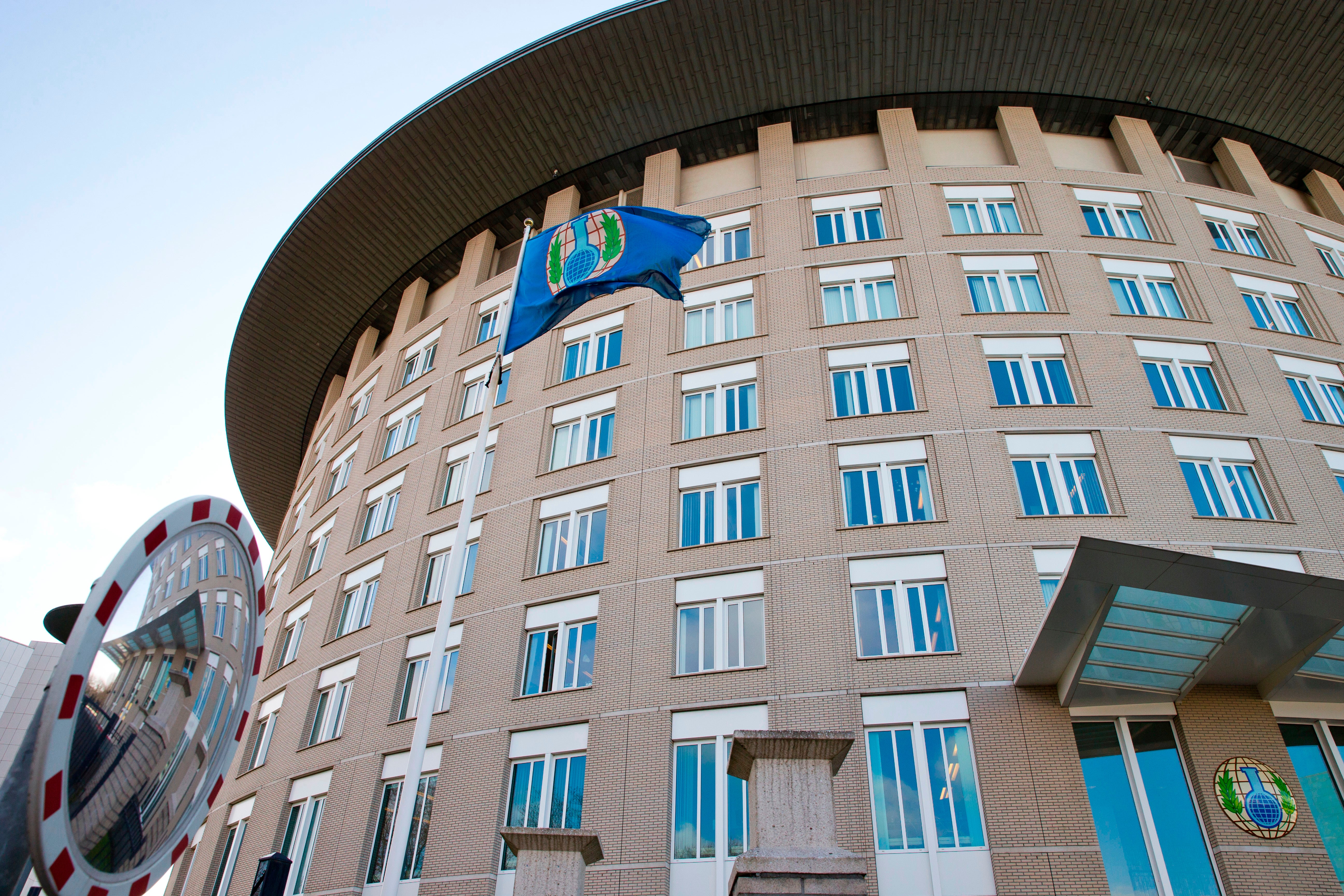OPCW probes couldn't prove chemical use in 2 Syria attacks
The global chemical weapons watchdog says that two investigations into alleged attacks in Syria in 2016 and 2018 couldn't establish that chemical weapons were used in either case

Your support helps us to tell the story
From reproductive rights to climate change to Big Tech, The Independent is on the ground when the story is developing. Whether it's investigating the financials of Elon Musk's pro-Trump PAC or producing our latest documentary, 'The A Word', which shines a light on the American women fighting for reproductive rights, we know how important it is to parse out the facts from the messaging.
At such a critical moment in US history, we need reporters on the ground. Your donation allows us to keep sending journalists to speak to both sides of the story.
The Independent is trusted by Americans across the entire political spectrum. And unlike many other quality news outlets, we choose not to lock Americans out of our reporting and analysis with paywalls. We believe quality journalism should be available to everyone, paid for by those who can afford it.
Your support makes all the difference.The global chemical weapons watchdog said Friday that two investigations into alleged attacks in Syria in 2016 and 2018 couldn't establish that chemicals were used as weapons in either case.
The Organization for the Prohibition of Chemical Weapons issued two reports by its Fact-Finding Mission into attacks in Saraqib in the Idlib region on Aug. 1, 2016, and in Aleppo on Nov. 24, 2018.
The report on the Saraqib attack said that open source reports suggested around 30 people, mainly women and children experienced breathing difficulties. The reports also “indicated the presence of a substance with an odor similar to that of chlorine,” the OPCW report said.
Opposition groups blamed the attack on Syrian government forces, an allegation Syria rejected, the OPCW report said.
The Fact-Finding Mission wasn't able to visit the site of the alleged incident or the hospital where injured victims were treated. It had to rely on data including interviews, hospital records and videos and photographs.
Its investigations and analysis “did not allow the FFM to establish whether or not chemicals were used as a weapon,” according to the report issued Friday.
The alleged chlorine attack in Aleppo was blamed on rebel forces.
“Social media reported that armed opposition groups dismissed accusations that they had used poisonous gases to attack areas controlled by the government in the city of Aleppo,” the OPCW report said.
Despite visiting hospitals to collect medical records and analyzing samples, the Aleppo investigation also didn't establish whether chemicals were used as a weapon, the report said.
In the past, a joint U.N.-OPCW investigative mechanism accused Syria of using chlorine and the nerve agent sarin during the civil war, while the Islamic State group was accused of using mustard gas twice in 2015 and 2016.
In April this year, an OPCW investigation blamed the Syrian air force for a series of chemical attacks using sarin and chlorine in late March 2017 on the central town of Latamneh.
The Syrian government has consistently rejected repeated allegations that it launched chemical weapons attacks.